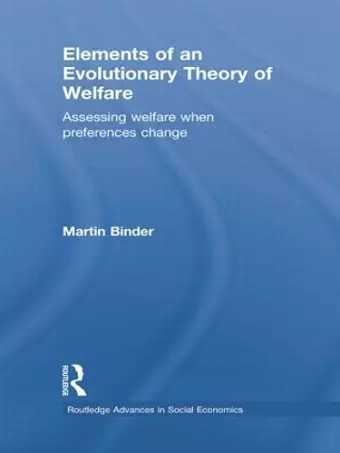Elements of an Evolutionary Theory of Welfare
Assessing Welfare When Preferences Change
Format:Paperback
Publisher:Taylor & Francis Ltd
Published:23rd Jun '14
Currently unavailable, and unfortunately no date known when it will be back
This paperback is available in another edition too:
- Hardback£150.00(9780415562980)

It has always been an important task of economics to assess individual and social welfare. The traditional approach has assumed that the measuring rod for welfare is the satisfaction of the individual’s given and unchanging preferences, but recent work in behavioural economics has called this into question by pointing out the inconsistencies and context-dependencies of human behaviour. When preferences are no longer consistent, we have to ask whether a different measure for individual welfare can, and should, be found.
This book goes beyond the level of preference and instead considers whether a hedonistic view of welfare represents a viable alternative, and what its normative implications are. Offering a welfare theory with stronger behavioural and evolutionary foundations, Binder follows a naturalistic methodology to examine the foundations of welfare, connecting the concept with a dynamic theory of preference learning, and providing a more realistic account of human behaviour.
This book will be of interest to researchers and those working in the fields of welfare economics, behavioural and evolutionary economics.
"If the assumption is no longer that our preferences and wants are fixed but that they change over time, how should we think of economic welfare? In a much needed book, Martin Binder puts a novel discussion of these crucial issues on a firm behavioural and evolutionary footing." - Jack Vromen, Erasmus University, Rotterdam, The Netherlands
ISBN: 9781138807082
Dimensions: unknown
Weight: 408g
280 pages